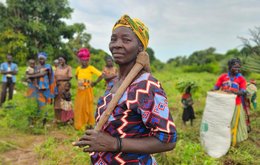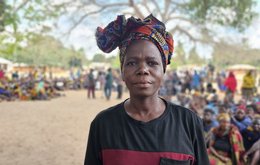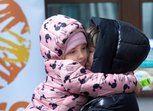The number of people in need of humanitarian assistance globally is at unprecedented levels, exacerbated by the climate emergency, conflict and the COVID-19 pandemic. As many as 733 million people worldwide are affected by hunger, and more than 120 million have been forcibly displaced from their homes by war, violence, persecution, and human rights abuses.
Emergency appeals
With your support, we deliver life-saving assistance wherever and whenever disaster strikes.
How CARE responds in emergencies
CARE and our partners respond quickly, at scale, to emergencies and disasters that affect the lives of millions of people around the world. Our emergency response experts provide emergency shelter, water, sanitation, food, and sexual and reproductive health support to those in need.
We use approaches that protect people’s dignity, and build resilience and social cohesion in communities before, during and after an emergency.
Our focus on women and girls
When a crisis hits, women and girls often suffer the most – and in ways that differ to men. For example, pregnant women and young mothers have specific healthcare needs which often go unmet during an emergency.
For this reason, gender is at the centre of CARE’s humanitarian response. We put a special focus on understanding and addressing the power and gender imbalances that affect women and girls in crisis situations.
Through our advocacy work, we call for women's voices to be amplified and their rights realised in humanitarian response. Our Women Lead in Emergencies approach supports women to take the lead in responding to crises that affect them and their communities.
A locally led response
We recognise that local organisations have a deep contextual knowledge and significant skills and expertise. We therefore prioritise working with local partners in all contexts.
Women are frequently the frontline responders within their communities when a crisis strikes, and they possess valuable knowledge, influence and expertise on what is needed. We prioritise working with local women’s organisations to ensure our humanitarian response meets the specific needs of women and girls.
Ongoing crisis response
We stay with communities long after the last cameras have gone away, supporting them to build their resilience and rebuild their lives for however long it takes.
-

Shelter
Emergency shelter protects vulnerable people from danger, suffering and exploitation following a crisis, whether man-made or the result of a natural hazard.
-

Women Lead in Emergencies
Supporting women at the frontline of conflict and disaster to take the lead in meeting the needs of their communities.
-

Early Action Fund
Supporting communities to prepare for emergencies - before they happen.
-

Forgotten humanitarian crises
The CARE Crisis Report highlights the ten humanitarian crises that receive the least media attention.
-

Humanitarian response in Yemen
Supporting communities affected by the crisis in Yemen to strengthen their resilience and help ensure the voices of the most vulnerable are heard.
-

Building resilience in Syria
Two-thirds of the Syrian population require humanitarian assistance, and 90% of families live in poverty. CARE is supporting communities to rebuild their lives and their livelihoods.
Latest crisis response news and stories
-
Haifa’s story: Pregnancy and displacement in Gaza
Haifa is nine months pregnant and has two young daughters in Gaza. Over the past two years, they have been displaced at least ten times. This is their story.
-
Forcible displacement in Gaza City: Where should we go?
Forcing one million people to leave their homes and places of shelter will push an already catastrophic humanitarian situation over the edge. Families are facing agonising decisions whether to to leave or go.
-
Afghanistan earthquake: Rescue efforts underway
CARE is working with survivors of the earthquake in Afghanistan to establish their most urgent needs.







